
-
Find the right food for your petTake this quiz to see which food may be the best for your furry friend.Find the right food for your petTake this quiz to see which food may be the best for your furry friend.Featured products
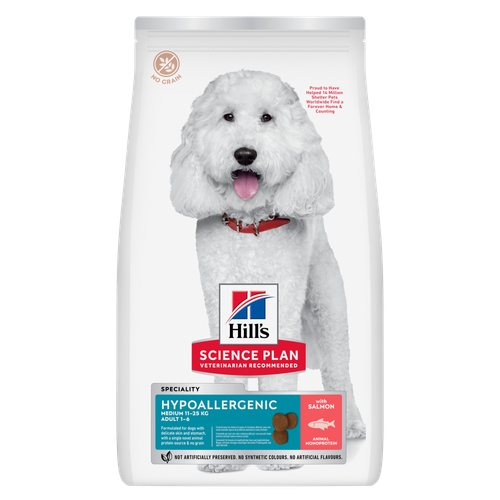 Hypoallergenic Medium Adult Dog Food
Hypoallergenic Medium Adult Dog FoodScience Plan Hypoallergenic Medium Adult dog food with Salmon is a gentle, science-led formula crafted for dogs with food sensitivities. Made with carefully selected, high-quality novel proteins and no grains, it’s tailored to minimise common triggers that can lead to skin and digestive discomfort.
Shop Now Perfect Weight Small & Mini Adult Dog Food
Perfect Weight Small & Mini Adult Dog FoodHill's Science Plan Adult Small & Mini Dog Food with Turkey is a complete premium pet food for adult small dogs from 1 year old that are prone to weight gain or slightly overweight. This deliciously smooth mousse is formulated to deliver the appropriate amount of energy to support weight maintenance in adult dogs.
Shop Now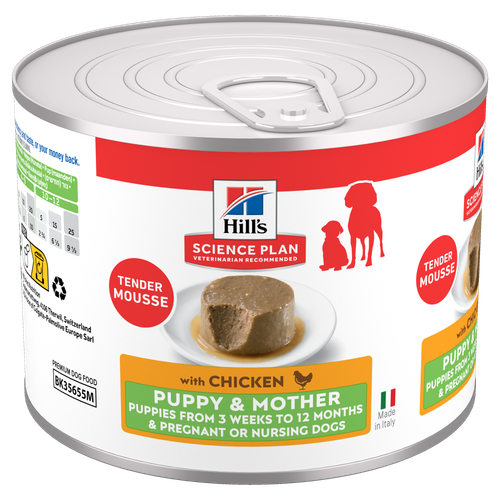 Puppy & Mother Tender Mousse Dog Food
Puppy & Mother Tender Mousse Dog FoodHill's Science Plan Puppy & Mother Tender Mousse Dog Food with Chicken is a complete premium pet food for puppies and pregnant or nursing dogs. Formulated with chicken and other specially selected ingredients, including minerals and antioxidants to support gut health and optimal growth, it comes in a soft mousse texture they'll love.
Shop NowFeatured products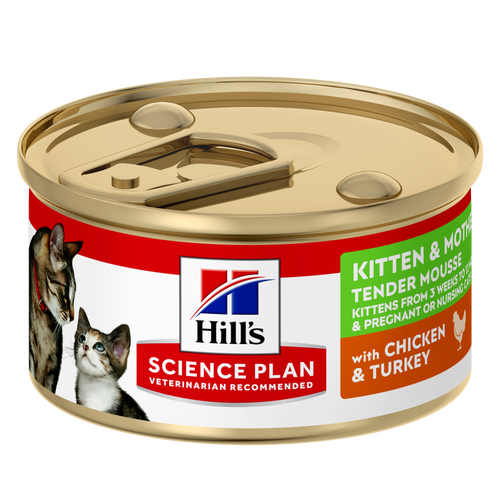 Kitten & Mother Tender Mousse Cat Food
Kitten & Mother Tender Mousse Cat FoodHill's Science Plan Kitten & Mother Tender Mousse Cat Food with Chicken & Turkey is a complete premium pet food for kittens from weaning until 1 year old and for pregnant and nursing cats. Formulated with chicken, turkey and other specially selected ingredients to support gut health and optimal growth. It comes in a soft mousse texture they'll love.
Shop Now Hypoallergenic Dry Cat Food
Hypoallergenic Dry Cat FoodHILL'S SCIENCE PLAN Hypoallergenic Adult cat food with egg & insect protein is a complete pet food for adult cat 1–6 years old. It's formulated for cats with delicate skin and stomach, with limited high quality novel protein sources & no grain.
Shop Now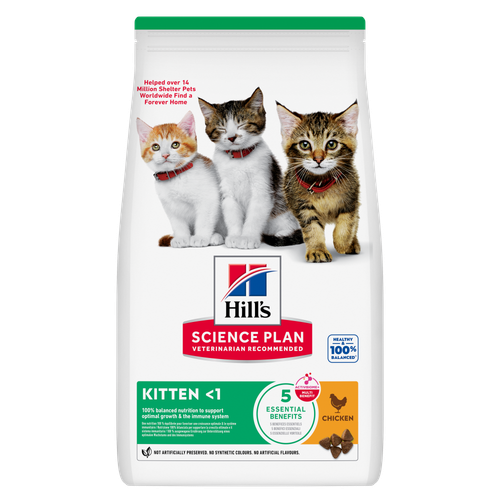 Kitten Food
Kitten FoodHill's Science Plan Sterilised Kitten Cat Food with Chicken is specially formulated with ActivBiome+ Multi-Benefit Technology. This food is carefully formulated for the developmental needs of kittens, so they get the best start in life & grow to their full potential.
Shop Now -
Dog
- Dog Tips & Articles
-
Health Category
- Weight
- Food & Environmental Sensitivities
- Urinary
- Digestive
- Joint
- Kidney
-
Life Stage
- Puppy Nutrition
- Adult Nutrition
- Senior Nutrition
Cat- Cat Tips & Articles
-
Health Category
- Weight
- Skin & Food Sensitivities
- Urinary
- Digestive
- Kidney
-
Life Stage
- Kitten Nutrition
- Adult Nutrition
Featured articles Tips For Mixing Wet And Dry Pet Food
Tips For Mixing Wet And Dry Pet FoodDiscover tips for mixing wet and dry pet food to ensure balanced nutrition and variety for your pet. For comprehensive feeding advice, visit Hill's Pet UK.
Read MoreTips for Working From Home With a PetGet helpful information on how to get all of your work done while keeping your dog or cat entertained when working from home.
Read More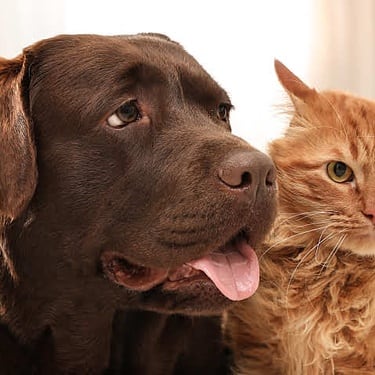 What Cleaning Products Are Safe for Pets?
What Cleaning Products Are Safe for Pets?Learn which cleaning product ingredients can be hazardous for dogs & cats, which alternatives are safer and tips for using cleaning products around pets.
Read More -


No pet parent likes to hear that sound: the hacking noise from the other room that tells you are going to have a mess to clean up. When your cat starts gagging, the first thought that might go through your head is, "Oh no, what did she get into now?" There are many reasons why your cat might throw up, some of them more serious than others. As a new pet parent, it is important to know the types of cat vomit and when an upchuck warrants a visit to the veterinarian.
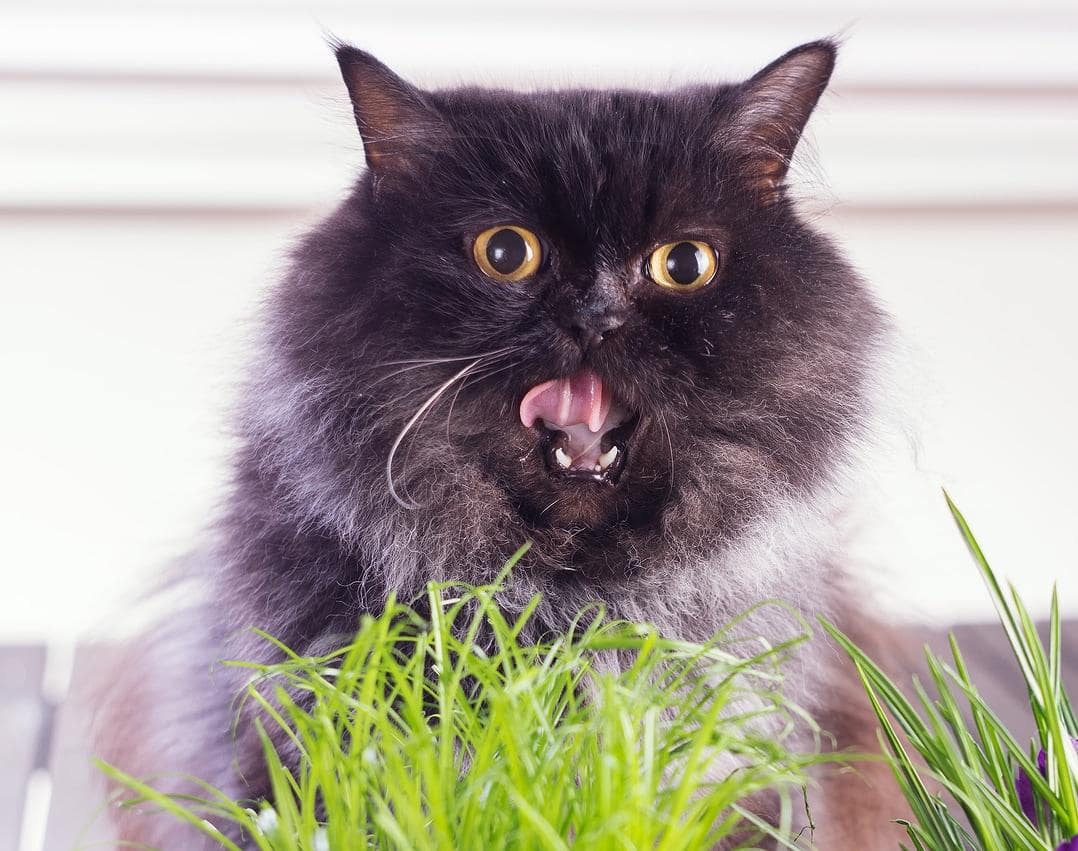
Hairballs: A Common Cause of Cat Vomiting
Even as a seasoned cat parent, it is important to understand the reasons behind cat vomiting. As cats age, their bodies change, and their vomit may be a way to tell you if those changes are normal or abnormal.
Although cat vomiting might be due to eating a part of a houseplant or ingesting a piece of a toy, your cat can get an upset stomach from over grooming. This most often resurfaces as a hairball.
Although a cat vomiting up a hairball every so often is normal, there are times when you may need to be concerned. Hairballs shouldn't be painful, frequent or difficult for your cat to pass. Untreated hairballs can also go the other way and cause painful intestinal blockages in extreme cases, according to The Nest, so keep track of your cat's normal routine and watch out for signs of constipation, lethargy, and anorexia if she has not passed a hairball in a while. If your cat has a consistent hairball problem, you might want to look into a cat food that is formulated for hairballs.
Cat Vomit Diagnostic Hacks
A hairball every now and then (often with foamy or yellow liquid) may not be a reason to call your vet, but if your cat starts having frequently, such as once a week, or the hairballs are large and seem to be causing your pet discomfort, you may want to have your feline friend in for a checkup.
According to the Cornell Feline Health Center, most vets start by determining if the vomit problem is related or unrelated to hairballs. They then move to discussing possible ingestion of harmful objects or substances in your home, and finally, if needed, they progress to X-rays or ultrasounds to find the problem.
It's helpful to know that most vets will approach cat vomiting this way so that you can gather useful information prior to calling for an appointment. When you call the vet, be prepared to describe your cat's recent surroundings, activities and vomiting frequency and appearance.


Tasty Tips
Other Reasons for Cat Vomit
If your cat barfs, but resumes regular activities and continues to eat and seem otherwise healthy, you (and she) may not have much to worry about. However, in some cases, frequent or excessive vomiting may be the result of a serious condition.
Vomit is vomit, but the color and contents of it can be very telling to what is causing your cat to throw up. For instance, yellow and foamy usually means hairball, but thick yellow bile can be a sign of a serious kidney problem or infection, says Washington State University College of Veterinary Medicine. If this yellow vomit is accompanied by lethargy, loss of appetite, increase of appetite or abnormal behavior, you should seek medical attention for your cat immediately.
One other scenario in which your cat might vomit is undigested food. Sometimes your pet may just eat too fast and expel her entire meal. This is referred to as regurgitation — it happens with many cats and usually is not an alarming issue. You may simply need to feed her smaller and more frequent meals to convince her to slow down.
In rare cases, internal parasites could be causing vomiting. Your vet may need to take a skin scrape or do blood work to rule out parasites.
Food Allergies
Some cats can also experience digestive turmoil from food sensitivities and allergies. Pay close attention to any behaviors your cat exhibits before and after eating. Besides vomiting, does she have diarrhea, bald patches or itchy skin? Discuss these observations with your vet and take your vet's advice on food changes.
Some cats may need a special or therapeutic food to resolve the problem. Others may need more intensive tests or medications to resolve the issue and reduce the vomiting. Do not attempt to diagnose your cat's allergy at home, since changing her food on your own could end up upsetting your cat's stomach more if not done properly.
Always err on the side of caution, and if something doesn't seem right, get your cat to the vet immediately. Although cat vomit is caused by these easily solved issues, every cat is different and your vet is the person best qualified to diagnose the underlying issue that is causing your cat to throw up.
Ways to Prevent Cat Vomiting
Wouldn't all pet parents love to know the secret to eliminating pet vomit? Or even a way to train your cat not to do it on your bed or carpet? Unfortunately, there's no magic word. But there are a few things you can try to ease your cleanup and your kitty's discomfort.
The easiest vomit comet to stop is hacking up hairballs. By brushing your cat regularly, keeping her active and feeding her food with balanced nutrition, you may be able to reduce the number of hairballs.
When it comes to regurgitating, make sure you feed your cat at the same time every day. Give her the amount of food recommended by your vet and have clean, fresh water available at all times. A cat that is experiencing frequent upset could become dehydrated. While most cats will get the majority of their water from their food, throwing up could result in loss of water, so make sure to give her plenty of access to water and encourage her to drink when possible. These three simple actions can go a long way in preventing overeating or eating too quickly. For a cat who still bolts her food, you can try a puzzle feeder or a dry food with large, crunchy pieces to slow her down.
Special foods or medication prescribed by your vet may also help relieve underlying health issues or allergies that lead to your cat vomiting. Be sure your cat sees the vet regularly and discuss your concerns.
Though cleaning up messes and bodily fluids is something all pet parents will experience at some point, following these tips and knowing when to seek the help of a professional can hopefully make these experiences few and far between.


Chrissie Klinger is an educator, writer and mother of two children, three dogs and three cats. Her dog Jake loves sitting on her lap every chance he gets! She enjoys living an active and eco-friendly lifestyle in rural Pennsylvania.
Related products

Hill's Science Plan Sterilised Kitten Cat Food with Chicken is specially formulated with ActivBiome+ Multi-Benefit Technology. This food is carefully formulated for the developmental needs of kittens, so they get the best start in life & grow to their full potential.
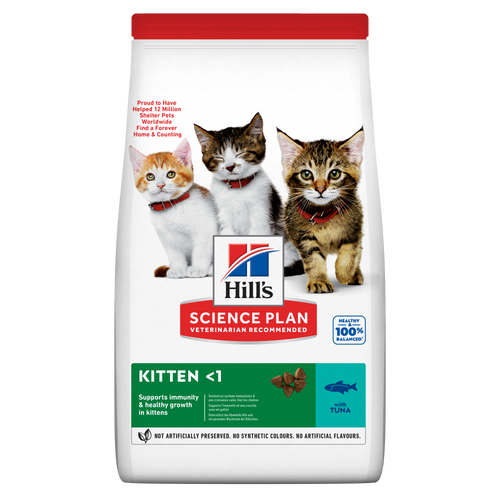
Hill's Science Plan Sterilised Kitten Cat Food with Salmon is specially formulated with ActivBiome+ Multi-Benefit Technology. This food is carefully formulated for the developmental needs of kittens, so they get the best start in life & grow to their full potential.

Hill's Science Plan Kitten & Mother Tender Mousse Cat Food with Chicken & Turkey is a complete premium pet food for kittens from weaning until 1 year old and for pregnant and nursing cats. Formulated with chicken, turkey and other specially selected ingredients to support gut health and optimal growth. It comes in a soft mousse texture they'll love.

HILL'S SCIENCE PLAN Hypoallergenic Adult cat food with egg & insect protein is a complete pet food for adult cat 1–6 years old. It's formulated for cats with delicate skin and stomach, with limited high quality novel protein sources & no grain.
Related articles
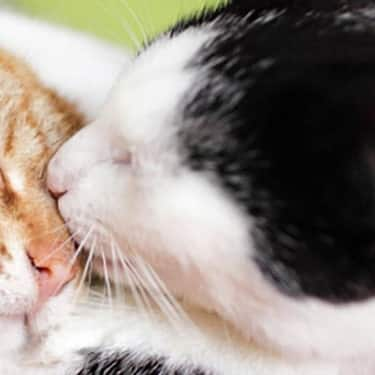
Learn the different factors that might be contributing to your cat's weight gain, and how bigger doesn't always mean better.
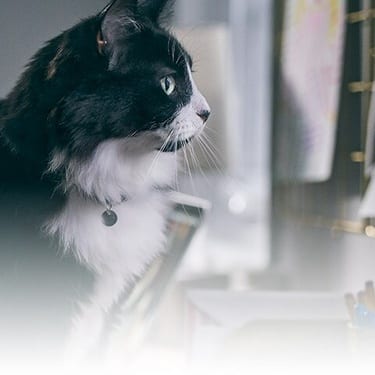
While hairballs are a common occurrence of cats, there are steps you can take to help them manage their problem and keep them healthy.
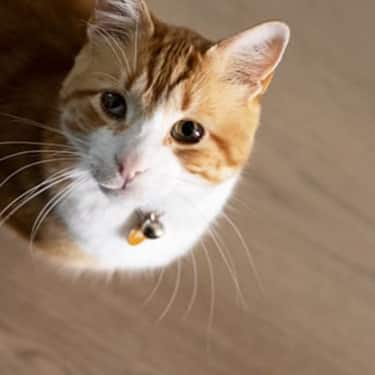
Learn how to spot the signs of a skin condition in your cat and the steps to take for their wellbeing. For comprehensive care advice, visit Hill's Pet.
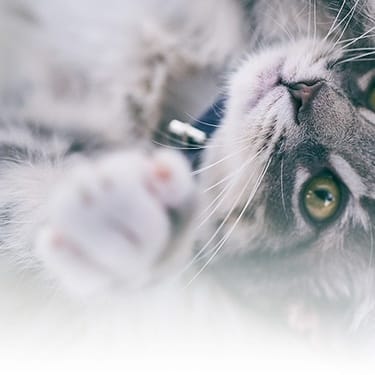
South African vets say more than half the patients they see are overweight. Learn more about managing your cat’s weight.

Put your cat on a diet without them knowing
Our low calorie formula helps you control your cat's weight. It's packed with high-quality protein for building lean muscles, and made with purposeful ingredients for a flavorful, nutritious meal. Clinically proven antioxidants, Vitamin C+E, help promote a healthy immune system.
Put your cat on a diet without them knowing
Our low calorie formula helps you control your cat's weight. It's packed with high-quality protein for building lean muscles, and made with purposeful ingredients for a flavorful, nutritious meal. Clinically proven antioxidants, Vitamin C+E, help promote a healthy immune system.

